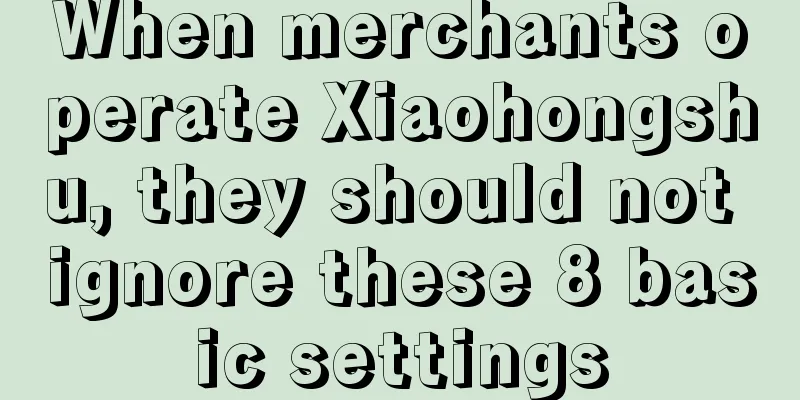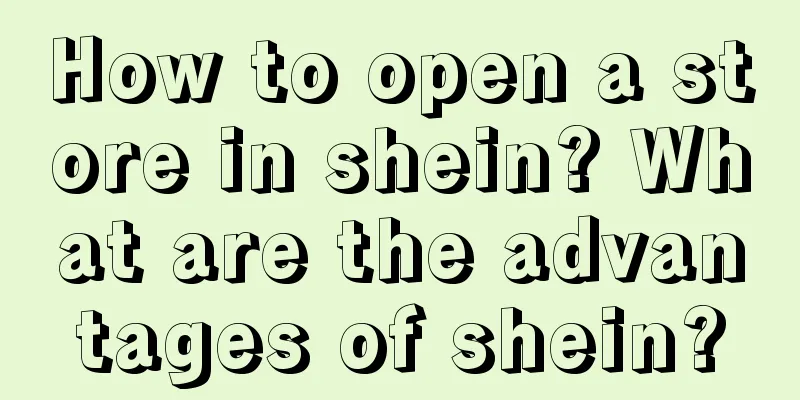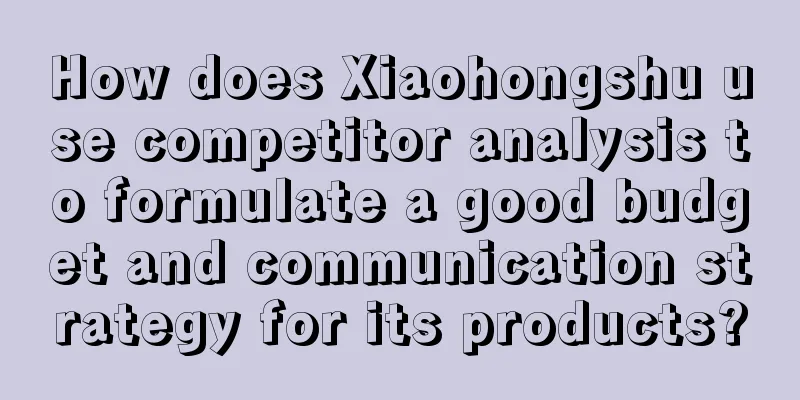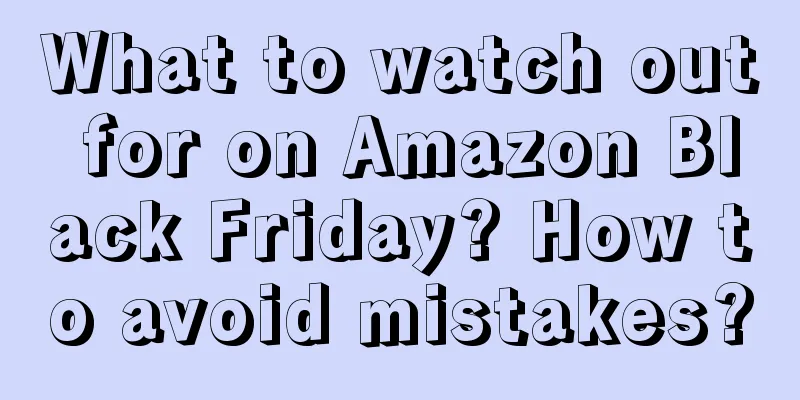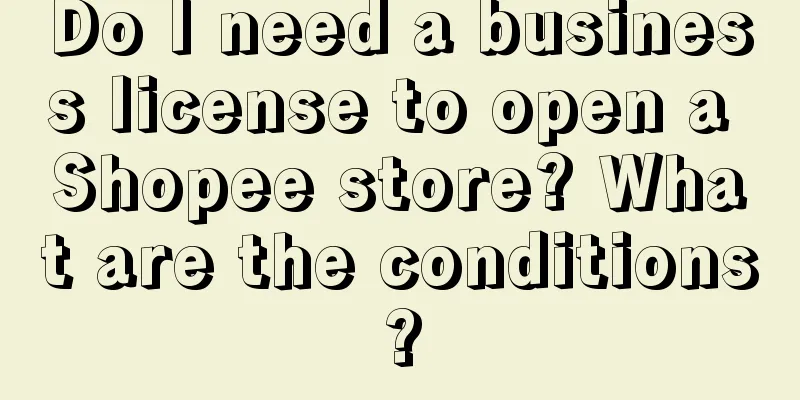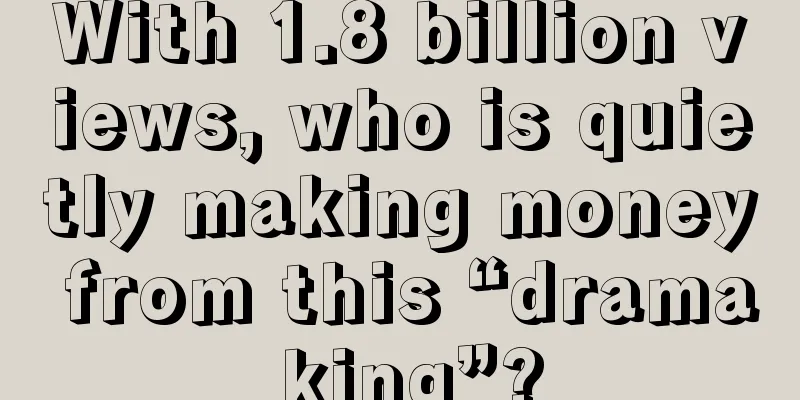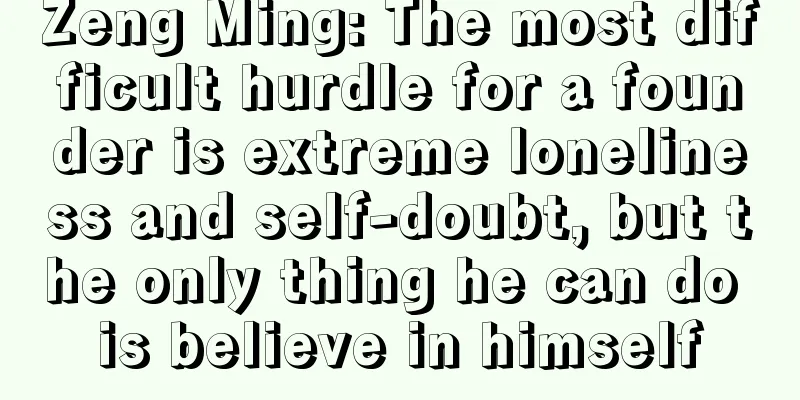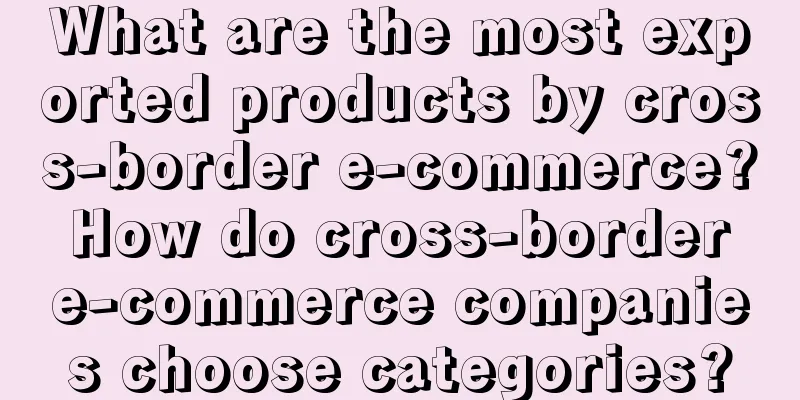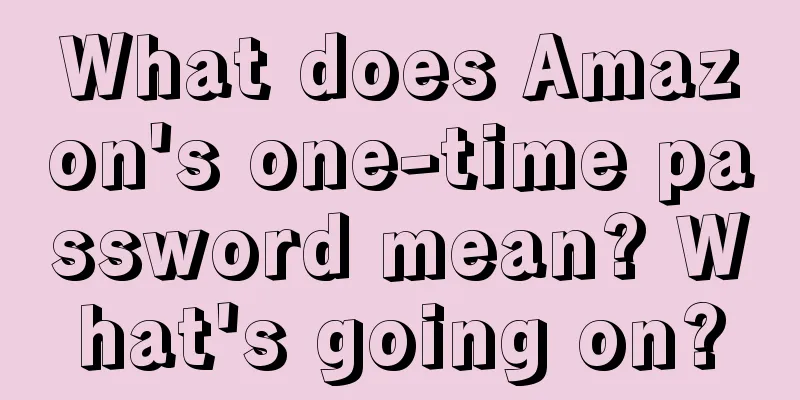How to Go Crazy in Brand Marketing in 2024
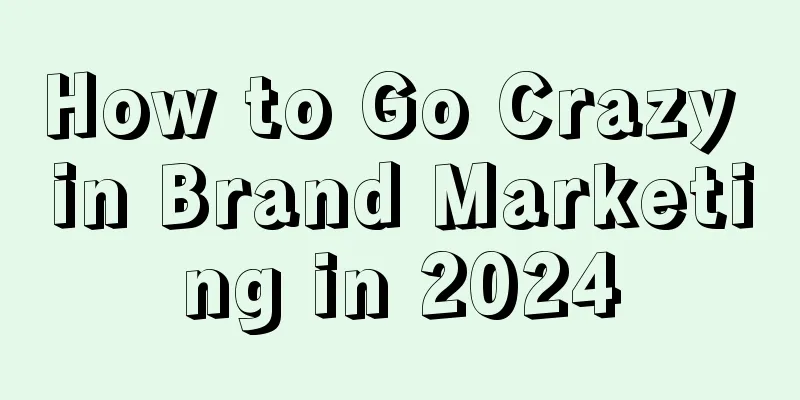
In 2023, "crazy literature" set off a wave of craze on social networks. People began to express their emotions and attitudes in an exaggerated and self-deprecating way, such as going crazy on daily basis, going crazy on holidays, going crazy at work. This seemingly absurd way of self-expression is not only a true portrayal of the individual's mentality under pressure and contradictions, but has also gradually become a popular form of decompression. This "crazy" strategy has also been used by many brands. In 2024, this trend has not only not subsided, but has intensified. Among Xiaohongshu's CNY trends in 2024, "crazy" is one of the eight major trends. Brands adopt the marketing method of "crazy literature" because it breaks the framework of traditional content marketing and establishes new connections and resonances with consumers in a more down-to-earth and humane way. In the ever-changing and challenging times, the "madness" of brands is not only a marketing strategy, but also a cultural awareness in the context of the times. It not only reflects the self-mockery of modern people about the pressure of life, but also a means for brands to seek resonance when communicating with consumers. 1. “Crazy Literature” in HistoryThe essence of "crazy literature" is an online cultural phenomenon that uses exaggerated and emotionally charged language to express strong emotions and appeals. It reflects the rebellious mentality of individuals in society when facing challenges, pressures and contradictions in life. "Crazy literature" did not appear in recent years. If we trace its essence, we can find that there have always been similar cases in history. Dionysus, the god of wine in ancient Greek literature, is the epitome of "madness". Dionysus's worshippers often participate in carnivals. During these celebrations, participants usually enter a state of frenzy and show strong irrational behavior. This culture reflects people's desire for freedom, emotional release, and rebellion against social norms. In Euripides' works, the women of Theoban enter a state of frenzy driven by the power of Dionysus. In Shakespeare's Hamlet, Hamlet pretends to be crazy in order to explore the truth and uncover the secret of his father's murder. This form of expression is a psychological reaction to his real predicament, showing the complex psychological state of an individual under extreme pressure. In essence, it is a manifestation of seeking truth under the false appearance of madness. In Cervantes's Don Quixote, the protagonist Don Quixote loses his mind because of his obsession with chivalric novels. His distorted understanding of reality and excessive imagination show the contradictory conflict between ideals and reality, and reflect the confrontation between individuals and social norms. Nietzsche proposed the superman theory in Thus Spoke Zarathustra, exclaiming that "God is dead". This idea challenged traditional concepts, embodied extreme rebellion against traditional social norms and the pursuit of personal freedom. Of course, there is no lack of the concept of "crazy literature" in Chinese literature. For example, in The Scholars, in the story of Fan Jin's success in the imperial examination, Fan Jin became mentally ill and exhibited extreme behavior after passing the imperial examination. And Lu Xun's Diary of a Madman reveals the cruelty of society and the dark side of human nature through the perspective of a crazy narrator. These "crazy literature" are not the same as what we call "crazy literature" today. They are more likely to expose the complex social environment and express personal rebellion against tradition in the form of the protagonist "going crazy". This kind of madness has profound practical and ideological significance. However, from these works, we can see that today's "crazy literature" has borrowed the spirit of classic works in the past to some extent, and the superficial madness is to reflect the inner world. 2. “Crazy Literature” in the Internet AgeThe Western trend that is closest to today's "crazy literature" should be the hippie movement. The hippie movement originated in the United States in the 1960s. It emphasizes freedom, love and peace, opposes war and materialism, and also advocates spiritual exploration and personal expression, representing a spirit of counter-mainstream culture. Steve Jobs was deeply influenced by the hippie spirit. The Apple company he founded incorporated this anti-traditionalist, pursuit of innovation, and emphasis on personal expression into its products and culture, which had a profound impact on the entire Internet and technology industry. The Internet's "crazy literature" is the inheritance of the Internet hippie spirit (although it is more superficial in comparison). It is the embodiment of young people's rebellious thoughts, pursuit of personal freedom, and pursuit of spiritual liberation. The earliest source of "crazy literature" on the Internet is difficult to verify. It is generally believed that "crazy literature" was first reflected in the conversations between consumers and customer service after a big sale. After Double Eleven, due to the large number of orders, merchants often deliver goods slowly. Consumers express their dissatisfaction with the slow delivery through exaggerated and emotional language. It is not ruled out that this way of communicating with customer service is Taobao's marketing, but the result is indeed the first time that the Internet's crazy literature has come to the fore. As time goes by, the application scenarios of "crazy literature" have gradually expanded to multiple fields such as games and social media. In games, players use this exaggerated language to express frustration or excitement during the game. Similarly, on social media, people use "crazy literature" to express dissatisfaction and pressure in life, work, etc., especially on weak social relationship platforms such as Weibo and Xiaohongshu. Many people put aside their personalities in the circle of friends and show their "broken" state to their heart's content. "Blow up the earth with one punch!", "Hate everyone equally!", "Life is bound to be crazy, we're just holding on", the crazy way of expression is gradually accepted by the younger generation and becomes a new social language. When you are in a bad mood, you go to Weibo or Xiaohongshu to go crazy, which can make you feel better for a short time. The reason why "crazy literature" is popular among young people is that, first of all, it is a way of emotional catharsis, which is closely related to the "difficult" environment that young people are facing today. Against the backdrop of economic slowdown and increasing pressure in the workplace and life, young people use "crazy literature" to release their inner pressure and emotions in exaggerated and humorous language. Secondly, this way of expression rebels against secular social norms and concepts of success, encouraging young people to abandon their artificial personalities and show their true selves, even if that is a fragile and imperfect side. After all, life is already difficult, so why bother pretending it’s easy? Finally, in terms of form, "crazy literature" often adopts a joke-like expression method. This short and humorous style is easy to spread, and the creation threshold is relatively low, which allows most people who want to "go crazy" to participate. In this way, young people have found a new way to communicate that allows them to express themselves while also resonating with others. 3. Brand marketing, how to go crazy correctly?Understanding and integrating the preferences of young people is the most basic marketing strategy for a brand. When "crazy literature" has become a way for young people to communicate and interact, the brand should combine this method to do marketing. There are actually precedents for crazy marketing. Old Spice, a men's shower gel brand, is famous for its creative and humorous advertisements, which usually feature exaggerated scenes and absurd humor. Its advertising format is different from most traditional advertisements and has a sense of anti-mainstream advertising. The advertisements of this brand are too classic and famous to be elaborated here. Dollar Shave Club is a representative of D2C brands. Its founder used a somewhat crazy and humorous style in his promotional video, attracting consumers through exaggerated performance techniques and light-hearted and humorous language, especially pointing to Gillette as a rebel. "Do you really like to spend $20 a month on a brand-name razor? I'm afraid $19 of it goes to the brand spokesperson Roger Federer," "Do you think you need a vibrating handle, a flashlight, a back razor and 10 blade heads?" He gave a better option: "Only one dollar a month, good blades will be mailed directly to your home." The video shot by Dibin quickly became a hit on YouTube and brought in a lot of sales. These marketing campaigns are somewhat different from today’s crazy marketing, but in essence they all use unconventional content methods to express brand personality and rebellious image. Crazy marketing is certainly a marketing method that takes an unconventional approach and creates a contrast. Just as people release their emotions by "going crazy" on social networks, brands express their emotional resonance with consumers through this method and create a more approachable and life-like image for themselves. However, it is not easy to do this marketing method well. If you are not careful, the brand may go from fake madness to real madness. Here are my suggestions on how to do crazy marketing well. 1. Communicate with an equal and authentic attitude"Crazy literature" itself is a gesture of putting down packaging and showing the true self. For brands, crazy marketing should also abandon pretentious packaging and show the true side of the brand. In the era of social media, users prefer brands that can interact with them in an approachable and down-to-earth way, rather than those brands that are high-handed and out of touch with reality. Entering the world that consumers like with an equal and authentic attitude and playing with users is the most basic attitude. If this cannot be done, or the organization still has concerns about doing this, then this marketing method is not suitable. Therefore, crazy marketing is not suitable for all brands. For example, luxury goods and high-end brands themselves create an image that is high and unattainable by ordinary people. It represents inequality and is therefore not suitable for this marketing method. 2. Choose the right time"Crazy literature" itself is an accidental release for ordinary users, not the norm. For brands, crazy marketing should also choose the right time. For example, Spes went crazy on Weibo at a very suitable time. When Taobao was going to award the "Golden Peach Award" to brands with sales exceeding one million, Spes found that their sales performance was only 20,000 away from reaching one million. So, the brand went crazy in a humorous way in the comments on Taobao's official Weibo, comparing the peach-shaped trophy to a "butt." This humorous comment caused laughter from the audience, who actively participated in this "crazy" interaction. On the contrary, Huaxizi chose crazy marketing during the PR crisis, which was not the best time, because in times of crisis, consumers usually hope that brands can solve problems quickly rather than attract more attention through fierce marketing. This choice of timing may aggravate the PR crisis and cause strong resentment among consumers. 3. Use product memesIn today's world of rapid product iteration, products can be innovated quickly based on popular culture. Luckin Coffee often does this, launching corresponding products based on the current hot IP or culture. In the matter of crazy marketing, brands can create new special products based on "crazy literature." Lelecha provides an example. Based on the trend of "crazy literature", they created the "One Punch Blast" series of products, which is in line with the popular literature of "one punch to blow up the earth". This product successfully attracted consumers' attention through exaggerated and humorous visual expression. This reflects the brand's flexible application of product innovation and marketing strategy. In this way, Lelecha is able to create resonance with consumers while standing out in a highly competitive market. The approach of combining product innovation with crazy marketing is very suitable for fast-moving consumer goods, but the prerequisite is that the brand has an inclusive attitude and the organization can make decisions quickly. It is still difficult for most brands to achieve this step. 4. Show your vulnerable side when necessaryA brand showing its vulnerable side is a true reflection of the brand. Showing its vulnerable side at the right time can win the favor and trust of consumers. For example, when observing the direction of public opinion on the Internet for Baixiang, Hongxing Erke, and Fenghua, you will find that they did not show their strong side when communicating with the public, but appeared as a weak party. Hongxing Erke had an annual loss of more than 200 million yuan, but donated 50 million yuan. One-third of Baixiang's employees are disabled. Fenghua has aroused the sympathy of a large number of netizens because it was rumored that it was about to go bankrupt due to its too low prices. The impression given by showing weakness is "I worked very hard, but I just had bad luck." This is similar to the lives of many people, and people who have had the same experience will empathize and sympathize with it. For a brand to say that it is "cheap" is absolutely crazy according to the general principles of marketing, but that is exactly what Fenghua does. In 2021, after rumors of Fenghua's closure, they launched new shampoo and conditioner products, but did not do much packaging and marketing. In the official Douyin account of Fenghua, many netizens commented that "the packaging is cheap", "it looks very simple", "why not participate in the College Cup Advertising Competition to collect plans". Fenghua's account replied in a funny tone, "it costs money" and "we are cheap to begin with", which made people laugh and cry. 5. Co-create with fans"Crazy literature" was first created by ordinary users on social networks, which shows that ordinary users can create trends themselves. A large number of users on social networks are even better at playing with memes. Therefore, brands can put down their posture and play with users to create content together. By allowing users to participate in the creative process, brands can better connect with their target audiences. For example, KFC's "Crazy Thursday" event is a good example. In this event, KFC not only provides special discounts, but also encourages consumers to create content in a creative and humorous way. A large number of "crazy literature" jokes created by users are popular on the entire network, and more and more people know the KFCV50 joke. This co-creation method not only enhances consumers' sense of participation, but also makes marketing activities more vivid and attractive. Through this fan co-creation strategy, brands can more effectively leverage the fun of “crazy literature” while strengthening emotional connections with consumers. IV. Conclusion"Crazy literature" represents the psychological state of an era, and brand marketing is also facing a new environment in such an era. From literature to social media, this cultural phenomenon proves one thing: truth, humor, and resonance are the core of communication. By showing their true selves, going crazy at the right time, and co-creating with fans, brands can not only easily gain market attention, but also win the hearts of consumers. This is a brand new era of marketing, where brands are no longer cold sales machines, but should become part of the emotional world of consumers. Author: Xunkong WeChat public account: Xunkong’s Marketing Revelation (ID: xunkong2005) |
>>: Tencent urgently needs to loosen up its video accounts
Recommend
6 steps to turn Xiaohongshu into an efficient new private domain
This article first briefly introduces Xiaohongshu&...
"Soft Rice Man" bravely ventured into short videos, gaining 1.04 million followers in 30 days
In the short video field, three male bloggers, &qu...
Will Shopee lose points if the product is removed from the shelves after being put on the shelves? How to avoid the deduction?
Many merchants who serve foreign customers now hav...
Xiaohongshu manages people with its left hand and products with its right hand (managing brands worth 300 million yuan)
This article starts from the merchants on Xiaohong...
From Jingzhe to Spring Equinox, Banana is one step closer to life
This article reveals how Jiaoxia integrates lightw...
Young people don’t celebrate the New Year properly anymore. The festive atmosphere has faded, so should we change the way we live?
As the Spring Festival approaches, many people are...
What is the magic of rural internet celebrities?
In the process of modernization, everyone is runni...
618 Preview: New and old players start the "offensive and defensive battle"
Before the consensus of "everything for user ...
On Douyin, no one can escape the abstract live streaming of goods, which is much more abstract than the shaman dance.
From the rich lady character of Macau's Coco S...
Museums "come down to earth" to make money, and tourism "special forces" can't handle it anymore
For museums, becoming internet celebrities is a tr...
Can I still open a site if I can’t graduate from Shopee? How can I survive the incubation period?
After merchants join the Shopee platform, they can...
What are Amazon's overseas sites? Site introduction
Amazon has a huge amount of traffic. If merchants ...
What does a new Shopee store need to do? What are the basic tasks of a new store?
The development of the Shopee platform is very goo...
2023, virtual people become regular guests at parties
Nowadays, virtual humans have appeared more and mo...
Alibaba International Station changes intellectual property rules
Alibaba International Station released an announce...
